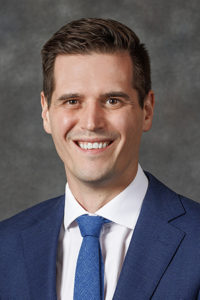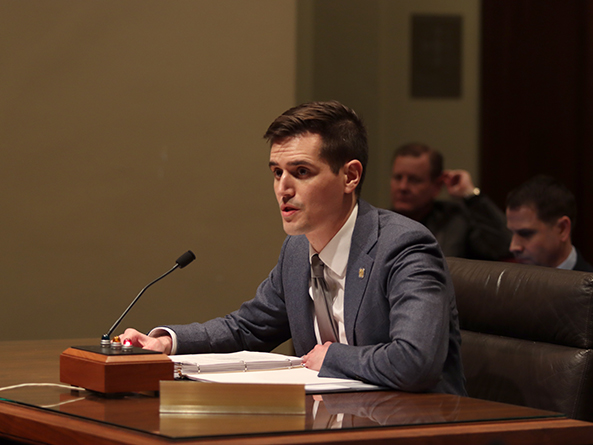Behavior analyst licensure proposed
Behavior analysts could become licensed and practice independently in Nebraska under a bill heard by the Health and Human Services Committee Jan. 26.

LB123, introduced by Omaha Sen. John Fredrickson, would create a licensure process for applied behavior analysts and includes a provision to allow behavior analysts licensed in another state to apply for a temporary license to practice in Nebraska until their full licensure is approved.
Under LB123, the Board of Behavior Analysts would be required to establish minimum standards for licensure and adopt a code of conduct based on the Ethics Code for Behavior Analysts.
According to the bill, the practice of applied behavior analysis includes the empirical identification of functional relations between behavioral and environmental factors. Fredrickson noted applied behavior analysts do not diagnosis disorders or engage in psychological testing, psychotherapy, cognitive therapy, psychoanalysis or counseling.
“Thirty-six other states now license behavior analysts,” Fredrickson said. “This becomes a workforce issue, as behavior analysts may receive education here in behavioral analysis, and then go to neighboring states to practice [where they] provide licensure.”
Desiree Dawson, a board certified behavioral analyst, testified in support of the bill. Currently, the practice of applied behavior analysis in Nebraska is unregulated, she said, and as a result, someone without the proper education, training and oversight could practice without any clear repercussions for potential harm done to patients.
“This profession deliberately attempts to change another person’s behavior,” she said. “Think about the harm that’s possible when therapeutic approaches are not applied properly at the hands of someone not upheld to the standard of our ethical code for practice.”
Also testifying in support of LB123 was professor of psychology Mark Shriver. Several students each year leave Nebraska to practice in a state with licensure that allows for the independent practice of behavior analysts, he said, and LB123 would help keep qualified practitioners in Nebraska to provide safe treatment as demand for services increases.
“As more companies come into the state to develop … it is imperative that consumers have a means to report problematic or unethical behavior and for a process to be in place to examine and take appropriate action,” Shriver said.
Vicky McHugh, a representative from the Nebraska Chapter of the American Physical Therapy Association, testified in a neutral capacity. The association supports the licensing and regulation of behavioral analysts, she said, but believes the bill lacks the specific language necessary to ensure the safety of Nebraskans.
For example, McHugh said, LB123 uses ambiguous terminology such as “functional assessment and analysis,” which could make it difficult for patients to understand the difference between the roles of a behavior analyst and a physical therapist.
Fredrickson indicated that he would offer an amendment to the bill to address concerns regarding the language.
No one testified in opposition and the committee took no immediate action on LB123.


